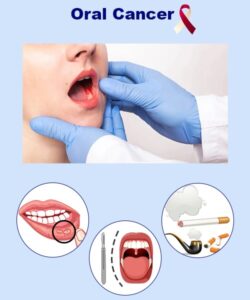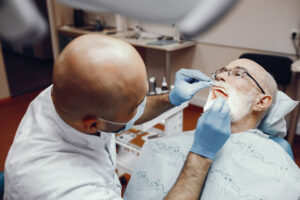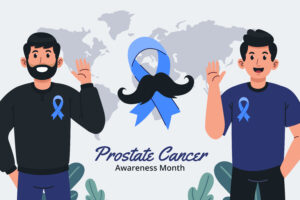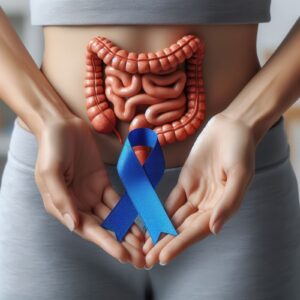Oral cancer is a severe and potentially fatal condition that impacts the entirety of the oral cavity, encompassing the tongue, gums, lips and pharynx. Understanding the risk factors and preventative measures associated with oral cancer is of the utmost importance. This blog post will examine the causes, risk factors and preventive measures associated with oral cancer. The function of cancer clinics in the diagnosis and treatment of oral cancer will also be addressed.
Causes of Oral Cancer
Oral cancer, similar to numerous other types of cancer, frequently emerges due to a confluence of genetic, environmental, and lifestyle influences. These are some of the most prevalent factors of oral cancer:
Tobacco Utilization:
Chewing tobacco and smoking, as well as smokeless tobacco products such as snuff, are among the primary causes of oral cancer. These products comprise carcinogens, which have the potential to induce malignant growths by causing harm to oral cells.
The Consumption of Alcohol:
Alcohol abuse constitutes an additional substantial risk factor in the development of oral cancer. When combined with tobacco use, alcohol can irritate the membrane of the mouth, becoming it more vulnerable to the development of cancer.
HPV: Human Papillomavirus
Sexually transmitted infection (HPV) strains that are specific are linked to the development of oral cancer. In recent years, oral cancer associated with HPV has increased significantly, especially among younger individuals.
Sun Contact:
Lip cancer risk can be increased by prolonged and excessive sun exposure, given that the skin on the lips is susceptible to injury from UV radiation. By applying sunblock-infused lip balms and donning protective eyewear, this risk can be mitigated.
Diet and Supplements:
An elevated intake of processed foods and a dearth of fruits and vegetables may increase the likelihood of developing oral cancer. A well-balanced, antioxidant-rich diet can aid in the prevention of cancer development.
Contributing Genetic Factors:
Oral cancer may be genetically predisposed to certain individuals. Possessing a family history of the disease could potentially increase your risk.
Oral Cancer Risk Factors:
 Following an examination of the etiology of oral cancer, we shall now proceed to analyze the risk factors that are linked to this ailment. Recognizing these risk factors can assist you in making well-informed decisions that decrease your likelihood of developing oral cancer:
Following an examination of the etiology of oral cancer, we shall now proceed to analyze the risk factors that are linked to this ailment. Recognizing these risk factors can assist you in making well-informed decisions that decrease your likelihood of developing oral cancer:
Age:
Oral cancer is diagnosed in the majority of patients who are 40 years of age or older. As the risk rises with age, it becomes increasingly important to undergo routine screenings and modify one’s lifestyle.
Regarding gender:
Oral cancer is significantly more prevalent in men than in women. This disparity in risk may be attributable to the fact that males use tobacco and alcohol at higher rates.
Lifestyle Decisions:
As previously stated, excessive alcohol consumption and tobacco use are significant risk factors. By quitting smoking and reducing alcohol intake, the risk can be substantially reduced.
Infection by HPV:
Oral cancer associated with HPV is more prevalent in lower age groups. By engaging in secure sexual behavior and receiving the HPV vaccination, this risk can be mitigated.
Adequate Oral Hygiene:
Chronic inflammation and irritation can result from neglecting dental hygiene and care, which increases the risk of developing oral cancer. Routine dental examinations are critical in facilitating early detection.
Exposure to Occupational Hazards:
Particular professions, including construction, may subject workers to hazardous particles and substances, thereby augmenting the likelihood of developing oral cancer. It is imperative to implement appropriate protective measures when entering these environments.
Prevention of Oral Cancer:
Preventing oral cancer is an essential measure in mitigating its incidence. The following techniques will assist you in safeguarding yourself and your loved ones:
Avoid Tobacco Use and Consume Alcohol in Moderation:
Preventing oral cancer through smokeless tobacco products and quitting smoking are the most effective measures that can be taken. Alcohol should be consumed in moderation.
Prevent Yourself Against HPV:
Consider receiving an HPV vaccination and engage in safe sexual behaviour to reduce the risk of developing oral cancer caused by HPV.
Preserve a Healthful Diet:
A fruit and vegetable-rich diet may provide some protection against oral cancer. Antioxidants, which are abundant in these foods, protect cells from injury.
Maintain proper oral hygiene:
Consistently cleanse your teeth with toothpaste and floss, and schedule routine checkups with your dentist. Prompt identification of oral cancer can substantially enhance the likelihood of effective therapeutic intervention.
Sun Protection Measures:
To reduce the risk of developing lip cancer, use lip salve containing sunblock and wear protective headgear when spending extended periods in the sun.
Clinics for Cancer and Oral Cancer:
The function of cancer clinics in the diagnosis and treatment of oral cancer is critical. Early detection and routine examinations are crucial for enhancing outcomes. How cancer clinics can be of assistance:
Evaluation and Diagnosis:
Specialized oral cancer examinations are offered at cancer clinics. Precancerous lesions and early-stage cancer can be detected through routine examinations, thereby increasing the likelihood of effective treatment.
 Alternatives to Treatment:
Alternatives to Treatment:
On the occasion that oral cancer is identified, cancer clinics provide an array of therapeutic alternatives, such as chemotherapeutics, radiation therapy, and surgery. The treatment plan is individualized to meet the requirements of each patient.
Assistive Services:
In addition to nutritional assistance, counselling services, and pain management, cancer clinics provide comprehensive care to assist patients with oral cancer in coping with the physical and emotional challenges it presents.
Conclusion
It is critical to comprehend the causes and risk factors of oral cancer in order to effectively implement preventive measures. You can decrease your likelihood of developing this potentially fatal disease by adopting an informed lifestyle and undergoing routine screenings. For guidance and support regarding oral health concerns or suspected symptoms, it is advisable to seek advice from a cancer clinic or your healthcare provider. Intervention and early detection can substantially increase the likelihood of successful treatment and recovery.




